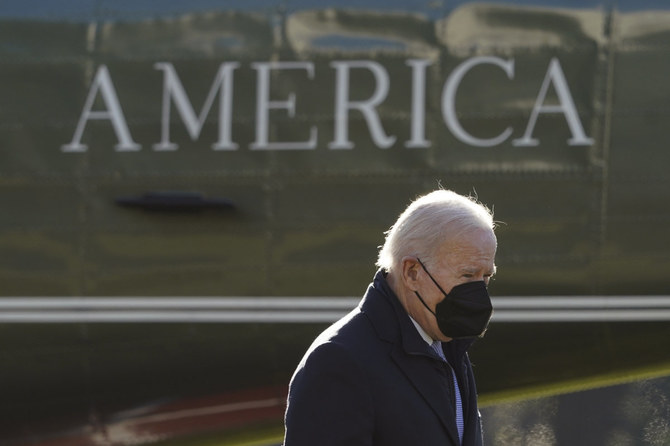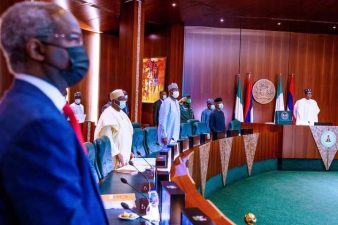The Biden administration launched a full-scale pressure campaign in a last-ditch effort to dissuade Middle Eastern allies from dramatically cutting oil production, according to multiple sources familiar with the matter.
But that effort appears to have failed, following Wednesday’s crucial meeting of OPEC+, the international cartel of oil producers that, as expected, announced a significant cut to output in an effort to raise oil prices. That in turn will likely cause US gasoline prices to rise at a precarious time for the Biden administration, just five weeks before the midterm elections.
On Wednesday morning, OPEC+ oil ministers meeting in Vienna agreed to an even larger production cut than the White House had feared — 2 million barrels per day, beginning in November, according to a readout of the meeting released on Wednesday. The ministers said the cuts were necessary “in light of the uncertainty that surrounds the global economic and oil market outlooks.”
President Joe Biden told CNN’s Arlette Saenz on Wednesday that he was “concerned” about the cuts, which he viewed as “unnecessary.” Secretary of State Antony Blinken told reporters when asked about the move that “when it comes to OPEC, we’ve made clear our views to the OPEC members.”
For the past several days, Biden’s senior-most energy, economic and foreign policy officials were enlisted to lobby their foreign counterparts in Middle Eastern allied countries including Kuwait, Saudi Arabia, and the United Arab Emirates to vote against cutting oil production. Wednesday’s production cut amounts to the largest cut since the beginning of the pandemic and could lead to a dramatic spike in oil prices.
Some of the draft talking points circulated by the White House to the Treasury Department on Monday that were obtained by CNN framed the prospect of a production cut as a “total disaster” and warned that it could be taken as a “hostile act.”
“It’s important everyone is aware of just how high the stakes are,” said a US official of what was framed as a broad administration effort that is expected to continue in the lead up to the Wednesday OPEC+ meeting.
The White House is “having a spasm and panicking,” another US official said, describing this latest administration effort as “taking the gloves off.” According to a White House official, the talking points were being drafted and exchanged by staffers and not approved by White House leadership or used with foreign partners.
In a statement to CNN, National Security Council spokesperson Adrienne Watson said, “We’ve been clear that energy supply should meet demand to support economic growth and lower prices for consumers around the world and we will continue to talk with our partners about that.”
For Biden, a dramatic cut in oil production could not come at a worse time. The administration has for months engaged in an intensive domestic and foreign policy effort to mitigate soaring energy prices in the wake of Russia’s invasion of Ukraine. That work appeared to pay off, with US gasoline prices falling for almost 100 days in a row.
But with just a month to go before the critical midterm elections, US gasoline prices have begun to creep up again, posing a political risk the White House is desperately trying to avoid. As US officials have moved to gauge potential domestic options to head off gradual increases over the last several weeks, the news of major OPEC+ action presents a particularly acute challenge.
Watson, the NSC spokesperson declined to comment on the midterms, saying instead, “Thanks to the President’s efforts, energy prices have declined sharply from their highs and American consumers are paying far less at the pump.”
All hands on deck
Amos Hochstein, Biden’s top energy envoy, played a leading role in the lobbying effort, which has been far more extensive than previously reported amid extreme concern in the White House over the potential cut. Hochstein, along with top national security official Brett McGurk and the administration’s special envoy to Yemen Tim Lenderking, traveled to Jeddah late last month to discuss a range of energy and security issues as a follow up to Biden’s high-profile visit to Saudi Arabia in July.
Officials across the administration’s economic and foreign policy teams were also been involved with reaching out to OPEC governments as part of the latest effort to stave off a production cut.
The White House asked Treasury Secretary Janet Yellen to make the case personally to some Gulf state finance ministers, including from Kuwait and the UAE, and try to convince them that a production cut would be extremely damaging to the global economy. The US has argued that in the long-run a cut in oil production would create more downward pressure on prices – the opposite of what a significant cut would be designed to accomplish. Their logic is that “cutting right now would increase risks of inflation,” lead to higher interest rates and ultimately a greater risk of recession.
“There is great political risk to your reputation and relations with the United States and the west if you move forward,” the White House draft talking points suggested Yellen communicate to her foreign counterparts.
A senior US official acknowledged that the administration lobbied the Saudi-led coalition for weeks to try to convince them not to cut oil production.
Efforts to court Saudi Arabia
Wednesday’s production cut comes less than three months after President Joe Biden traveled to Saudi Arabia and met with Crown Prince Mohammed bin Salman on a trip that was driven in part by a desire to convince Saudi Arabia, the de facto leader of OPEC, to increase oil production which would help bring down the then-skyrocketing gasoline prices. CNN




